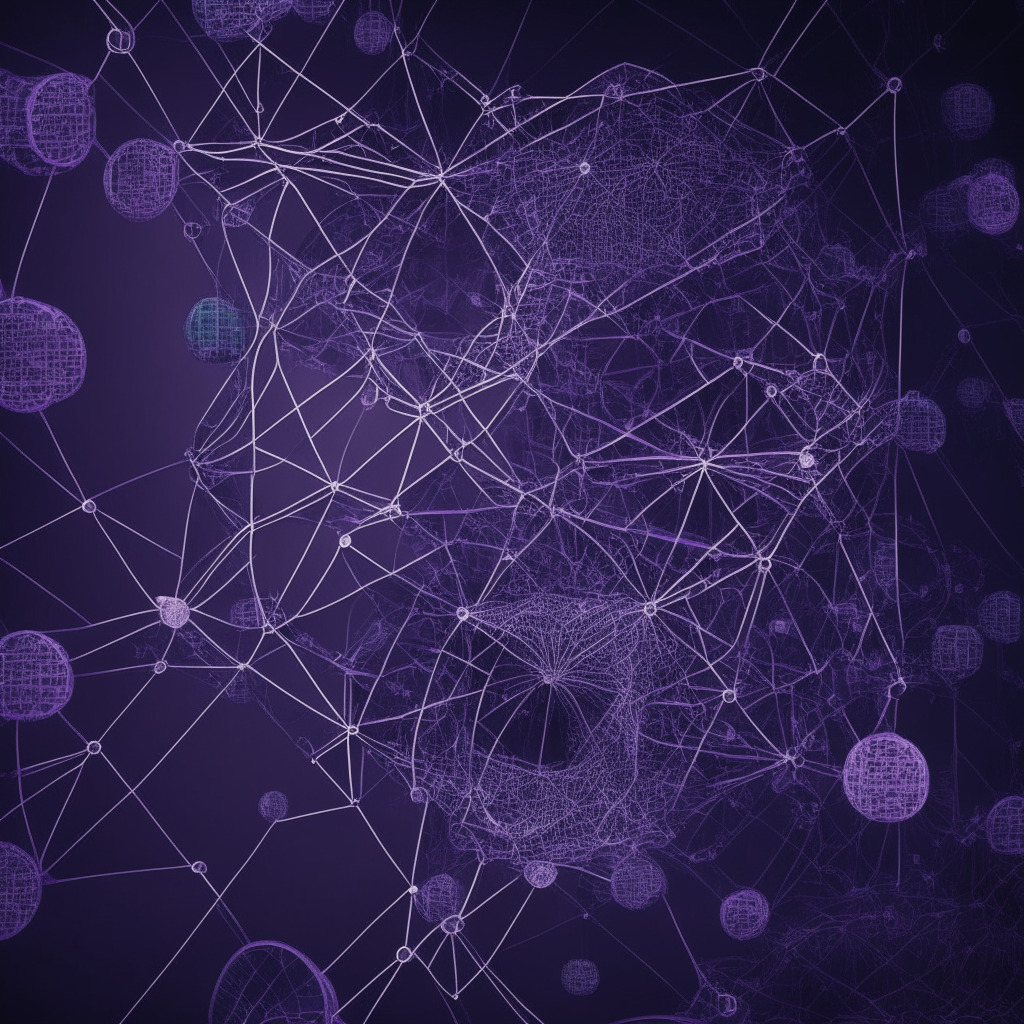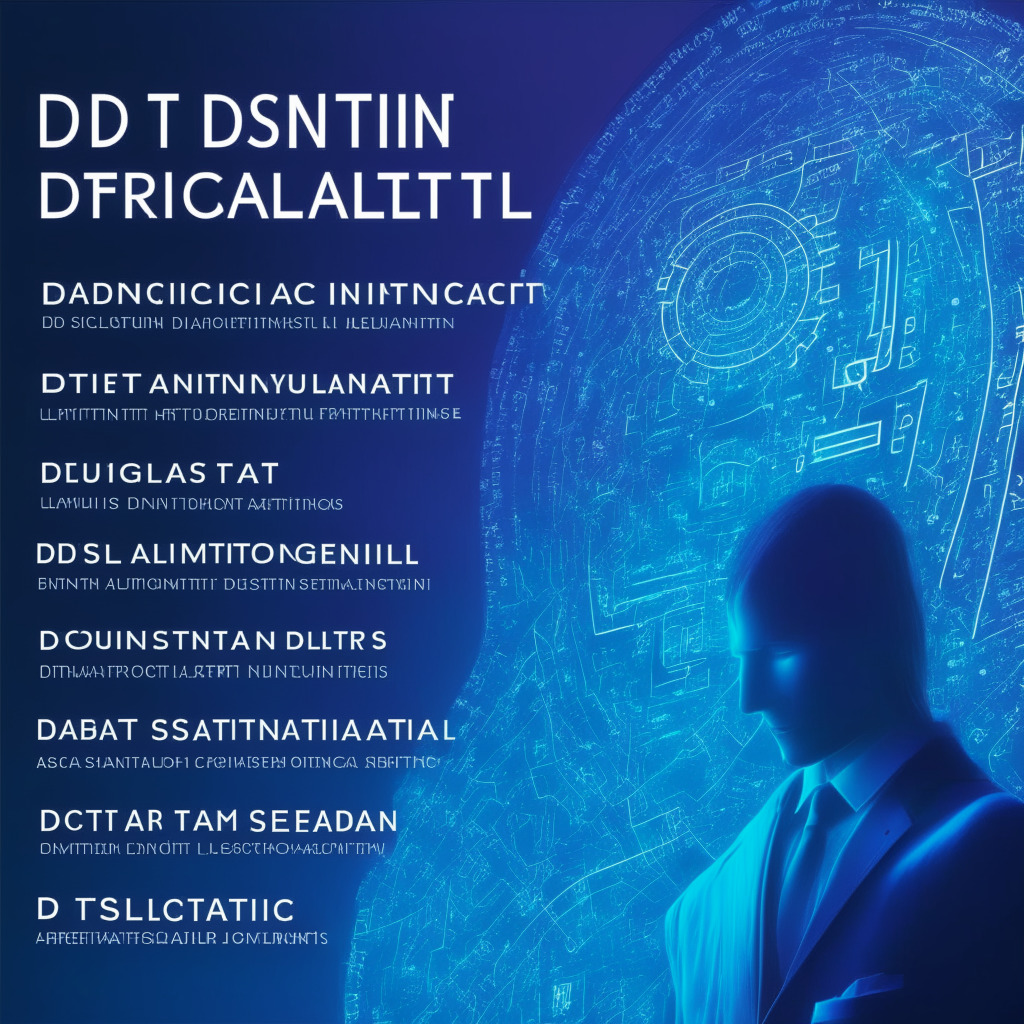The Nigerian government is leveraging blockchain technology to counter certificate forgery in their National Youth Service Scheme. This marks a transformation towards digital certification, potentially optimizing hiring practices by ensuring document legitimacy. The country’s adoption of blockchain aims to bolster transparency and promote sustainable economic growth.
Search Results for: National Information Technology Development Agency
Nigeria’s National Blockchain Policy: Hope for Crypto Amid Central Bank Resistance
The Nigerian Federal government approved a “national blockchain policy” after consultation with 56 institutions and personalities. This move indicates the institutionalization of blockchain technology in Nigeria. However, the Central Bank’s stance on privately issued digital currencies remains a roadblock, impacting the future of the Nigerian blockchain and cryptocurrency space.
Nigeria’s National Blockchain Policy: Economic Leapfrog or Cryptocurrency Oversight?
Nigeria’s Federal Ministry of Communications and Digital Economy has approved the National Blockchain Policy, emphasizing the country’s interest in digital innovation. This move aims to benefit public and private sectors, reduce reliance on oil and gas, and align with the ‘DIGITAL NIGERIA’ Roadmap for a secure transaction environment. Despite promising outlook, skepticism remains regarding the integration of blockchain technology without significant attention to cryptocurrencies.
Nigeria Approves National Blockchain Policy: Impact, Pros, Cons, and Future of Crypto
Nigeria recently approved the National Blockchain Policy, aiming to build a blockchain-driven economy enabling secure transactions, data sharing, and value exchange among individuals, businesses, and government. The policy is expected to improve trust and growth, fostering innovation and prosperity for all stakeholders involved.
Blockchain Future in Nigeria: Regulatory Challenges and Optimism on the Road Ahead
The Digital Assets Summit by SIBAN discussed Nigeria’s regulatory stance on blockchain technology. Stakeholders addressed concerns over the Central Bank’s reluctance to adjust crypto policies. National IT Development Agency’s new Blockchain Policy shows government’s progressive stance, focusing on Web3 Education to improve blockchain’s penetration despite language barriers and regulatory uncertainties.
Blockchain Regulation: A Comparative Study of Nigeria’s Leaps and America’s Gains
“The article examines the progress of blockchain regulation from two contrasting perspectives: Nigeria, known for its cryptocurrency-awareness, and the US, with its comprehensive regulatory frameworks. The piece discusses the regulatory challenges in Nigeria and the US’s approach in achieving a balance between enforcement and tech evolution.”
Nigeria’s Bold AI Leap: Contributing to Global Progress while Navigating Ethical Quandaries
“Nigeria is shaping its National Artificial Intelligence Strategy, seeking global experts to contribute their knowledge. AI, forecasted to contribute $15.7 trillion to the world economy by 2030, could transform Nigeria’s production, services, and economy. However, ethical considerations like data privacy, job displacement, and misuse exist alongside its transformative potential.”
Nigeria’s Blockchain Response to Counterfeit NYSC Certificates: A Pragmatic Move or a Cybersecurity Threat?
The Nigerian government plans to combat counterfeit National Youth Service Corps (NYSC) certificates by digitising them onto the blockchain for easier verification. This strategy aims to foster transparency and maintain the program’s integrity, potentially positioning Nigeria as a global leader in blockchain governance.
Navigating the Paradox: Nigeria’s Approach to Taxing Cryptocurrency Despite Regulatory Uncertainty
“Nigerian authorities plan to implement a 10% tax on digital assets, including cryptocurrencies, stirring concerns among industry participants. Stakeholders question this premature move while commercial banks are barred from facilitating cryptocurrency transactions, highlighting complexities in the nation’s stance towards digital currencies.”
Nigeria’s Blockchain Policy: Balancing Innovation, Regulation, and Skepticism in Crypto Adoption
Nigeria’s recent approval of its national blockchain policy has sparked anticipation and skepticism, aiming to institutionalize blockchain technology within the nation’s economy. The policy’s impact on cryptocurrencies and the challenge of establishing effective regulations will determine Nigeria’s future as a digital powerhouse in Africa.
CIA’s Shift to AI: Advancements in Investigation or Privacy Concerns Waiting to Unfold?
The Central Intelligence Agency (CIA) plans to utilize a custom-built AI tool to optimize investigative techniques by sifting through public information. Despite enhancing efficiency, this shift to AI technology raises concerns about the source of the AI model, information reliability, and data privacy issues. The development implies a significant change in the public sector’s approach to data interpretation.
Investigation on Worldcoin’s Data Privacy – A Closer Look into the Argentinean Scrutiny
Argentina’s Agency for Access to Public Information is investigating Worldcoin’s data privacy methods. The project, backed by OpenAI originator Sam Altman, bestows a digital ID on users through eye-scanning orbs which has raised concerns over infringement of rights.
Unmasking the Court Chess: Legal Intricacies and Revelations in Blockchain and Crypto
“In the volatile world of digital currencies, former FTX CEO, Sam Bankman-Fried recently made headlines with his legal team’s request to seal privileged documents. This legal maneuver, where transparency clashes with privacy rights, could influence his $250-million bail application and carries implications for both personal privacy and broader market dynamics. Meanwhile, French data protection agency CNIL questions Worldcoin’s data collection, signaling privacy concerns in an increasingly blockchain and crypto-driven world.”
Regulating AI: Balancing Innovation with Generative Dangers and Global Cooperation
UN Secretary-General António Guterres joins the call for AI regulation, comparing its potential threat to humanity to nuclear war. European Parliament passes world’s first-ever AI legislation, while OpenAI CEO Sam Altman supports regulating AI through establishing a government office and standards for development.
Biden’s Blockchain Focus: Digital Identity, DLT Advancements, and Balancing Privacy
The US government has emphasized the development of critical and emerging technologies, including digital identity infrastructure and distributed ledger technologies (DLT). As blockchain gains significance in the economic landscape, challenges arise in balancing innovation and privacy, while aiming to bolster US competitiveness and maintain a secure digital environment.














